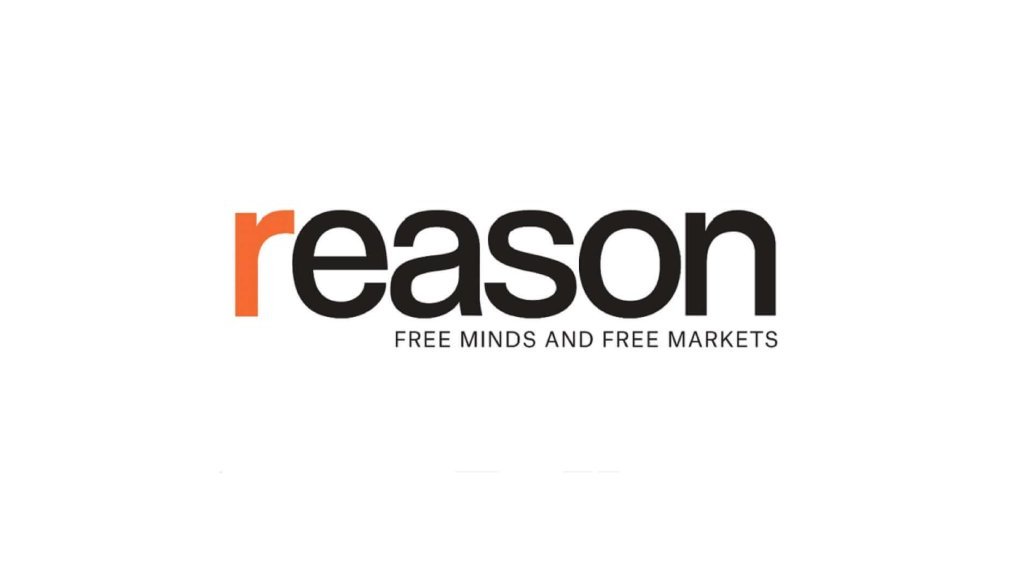The Surprising Origins of Modern Freedom
Today’s guest is University of Pennsylvania historian Sophia Rosenfeld, the author of The Age of Choice: A History of Freedom in Modern Life.
Her book explores why we’ve come to basically equate having more personal choices with having more freedom. She stresses it wasn’t always this way—in the past, freedom was often defined as the ability to act in the way God wanted you to act, or to overcome base urges, to be more angel than beast.
Rosenfeld talks about how the Reformation, which enshrined a right to choose among faiths, and the rise of shopping, which allowed us to choose among many products, worked to change all that, even up to our current day, where rhetoric about choice still dominates many political and economic arguments.
0:00—Intro
1:15—Main arguments from The Age of Choice
4:03—Earlier conceptions of freedom
7:37—The Reformation and religious freedom
10:32—Capitalism and market freedom
15:37—Consumer choice and femininity
20:00—Choice as freedom in the 20th century
26:07—Abortion rights and the choice debate
31:26—Choices vs. mandates
36:50—Overwhelmed by choice
Upcoming Reason Events
The Reason Roundtable Live in NYC, July 15
The Soho Forum Debate: Jacob Hacker vs. David Goldhill, July 16
Today’s Sponsor
Future of Freedom: If you’re tired of cable news debates and Twitter shouting matches and you’re looking for serious, good-faith conversations between people who actually care about liberty, then it’s time to check out the Future of Freedom podcast. Each episode dives deep into a single topic—tariffs, campus speech, the Department of Government Efficiency—and brings together two guests who disagree on the best path forward. But here’s the twist: This isn’t a debate show. No interrupting. No dunking. If you believe the future of freedom depends on more than just winning arguments and you’re ready for something deeper than the usual echo chambers, check out the Future of Freedom podcast. Real disagreement. Real ideas. Real conversations. Subscribe to Future of Freedom wherever you get your podcasts.
______________________________________________________________________________
Transcript
This is an AI-generated, AI-edited transcript. Check all quotes against the audio for accuracy.
Nick Gillespie: Give me a quick précis of the book’s argument.
Sophia Rosenfeld: Sure, I’m happy to do that. I think choice is one of those things we do tend to equate, as you’ve just suggested, sort of automatically with freedom. It’s sort of the water we swim in: more choice is better, more opportunities for choice is better than less. And I’m not here to really dispute that exactly, but I’m interested in both the good and bad things it’s brought us, and I’m also interested in how that happened.
Because actually, what’s perhaps surprising to people is that freedom hasn’t always been conceptualized as a matter of choice, and choice hasn’t been conceptualized as what brings us freedom. So the story that I tell in the book is really about two things. It’s about how choice came to proliferate so that we pick things in really disparate areas of life—ranging from political candidates to breakfast cereals to who we want to marry. We pick in all sorts of categories that would have seemed strange to people—still does to people in some parts of the globe today—and certainly would have to almost everyone around the globe in an earlier moment, a few hundred years ago.
So I’m interested in how that happened, and then I’m interested in how it came to be understood as freedom—why freedom became a matter of choice. Because there’s nothing actually obvious about it, though to us it sometimes seems that way.
The book traces a whole series of social practices that people engaged in—things they did, essentially. How did people start picking things in stores? How did they come to think of ideas or even religious notions as something one could select from a menu of options? And it goes all the way up—it starts really in the Reformation and in the first Age of Empire—but it takes us all the way to the 20th century and the invention of whole sciences of choice to study why we’re choice makers.
Let’s run through all of these. Also the other thing that the book focused on in a way that is fascinating is the way that choice often became identified as feminine—a part of being female—and also often times kind of depreciating choice because it’s something women would be dazzled or overwhelmed by too many choices in front of them, in consumer goods. There’s a long history, certainly in European, continental, and Anglo studies, of shopkeepers are sad little men who are somehow not quite manly in the way that martial virtues are. Choice gets identified with femininity in various ways. We’ll get to that.
First, let’s talk about before the modern era. Before the Reformation, freedom was not about choice—or to the extent that it was, it was about being able to make the right moral choice. Partly when I was reading this book, I think it was back in the ’80s, but at some point 7-Eleven stores brought in soda fountains that had both Coke and Pepsi products. They had a huge campaign: “Freedom of choice,” like we celebrate choice, choice, choice. That’s freedom—being able to have Mountain Dew and Coca-Cola without going to two separate stores.
But in this period when we’re talking about Hercules’ choice or the pre-modern definition of freedom—what was Hercules’ choice, and what does that say about earlier conceptions of freedom?
Right. If you were a person living in the 17th or 18th century in Western Europe, or even in the burgeoning United States, you probably would have been familiar with this idea of Hercules’ choice. It’s allegorized everywhere, from poetry to opera. John Adams proposed it for the seal of the new United States. It was harmonized with Christian teachings; so they went well together.
The idea was this: Hercules was torn. He was torn between doing the right thing—virtue—or the opposite, turning toward vice. And often in a painting, you see his body kind of torqued. He can’t quite decide which way. But he always, in the end, goes toward virtue—which is doing not what is hedonistic, not recognizing his hedonistic pleasures, but doing what was right morally, what was right for his family, what was right for his community. In the end, Hercules always makes the right choice. And so he became free—by himself, of his own volition— doing what was right.
And in that sense, he becomes free because he triumphs over his bodily urges or more base impulses?
He triumphs over his passions, his base impulses. He goes toward the moral, but as his own person. He isn’t compelled to be moral; but realizes it’s important for him to do the right thing.
So you’re free to the extent that you do what God expects of you—or morality—which is identified at that point, ironically, since it’s Hercules, and he’s a pre-Christian myth figure. But if you’re doing what a Christian God tells you to do, which is to be more of an angel and less of a beast, you have achieved freedom.
Absolutely. So this could be all these things harmonized: what God wanted you to do, what your family wanted you to do, what your community wanted you to do— lined up. And the idea is—of course, Hercules is a man; this is only allegorical—but he’s picking between two women as virtue and vice.
So it’s really imagined as a kind of manly freedom too.
It’s a kind of vision of thinking of others before oneself—not giving into based temptation, but being free to be the upstanding person that you’re supposed to be. This is a really important early modern trope, and it never entirely goes away, of course. But it’s not the dominant way we think of freedom today.
Let’s talk about that. Obviously, there are a lot of things that drive the shift from that kind of freedom to a freedom which is identified with increasing choice in all areas of human activity. But a big part of it—you mentioned this briefly in passing—is the Reformation, or the idea of religious freedom and being able to choose among different ways of, for the most part, it’s different ways of worshiping the Christian God. How does the Reformation help start to create a shift in how we understand freedom?
Right. So one way to tell this story would be to see just simply capitalism taking over everything, and everything just becomes a marketplace. Certainly that’s an important part of the story, but I don’t think it’s the whole story. I think the other point of origin—the less obvious one—may be the Reformation, for two reasons.
First, the Reformation sort of inadvertently ends up creating pluralism in the religious sphere, for Protestants especially. There are so many sects by the end of the 16th and 17th centuries that, in order for people to live together, they have to essentially accept—even though nobody really wanted to—the idea that Lutherans are going to need to live near Methodists, who are going to live near Calvinists, etc.
And it is worth talking about how, of course, none of them were saying, “Oh, and we should put up with Catholics.”
No. Absolutely not.
Catholics were not particularly interested in putting up with—
—far from it. This is a kind of inadvertent effect of the Reformation. Everybody thought they had the right answer. But over time—I’m talking to you from Philadelphia, my current city—and if you were in Philadelphia, a place of religious toleration in the 18th century, on a Sunday morning you could have heard sermons by something like 12 or 15 different kinds of Christians. That doesn’t even include Jews, or potentially Native Americans and other kinds of religious content.
I think in the colonial period, probably the only place—and I think it was more in rhetoric than in reality—but Providence, Rhode Island, coming out of Roger Williams‘ area, he stubbornly agreed that Jews, Catholics, and Muhammadans could live there in equal standing. But certainly not in most of the colonies.
One thing you see that’s really surprising is that tourists who come to Philadelphia in the 18th century will try out different churches on a Sunday morning. They’ll write things like, “Heard the African Methodists at 10—very interesting sermon. Enjoyed the Baptists even more at 11.” That’s odd. B
Article from Reason.com

The Reason Magazine website is a go-to destination for libertarians seeking cogent analysis, investigative reporting, and thought-provoking commentary. Championing the principles of individual freedom, limited government, and free markets, the site offers a diverse range of articles, videos, and podcasts that challenge conventional wisdom and advocate for libertarian solutions. Whether you’re interested in politics, culture, or technology, Reason provides a unique lens that prioritizes liberty and rational discourse. It’s an essential resource for those who value critical thinking and nuanced debate in the pursuit of a freer society.




